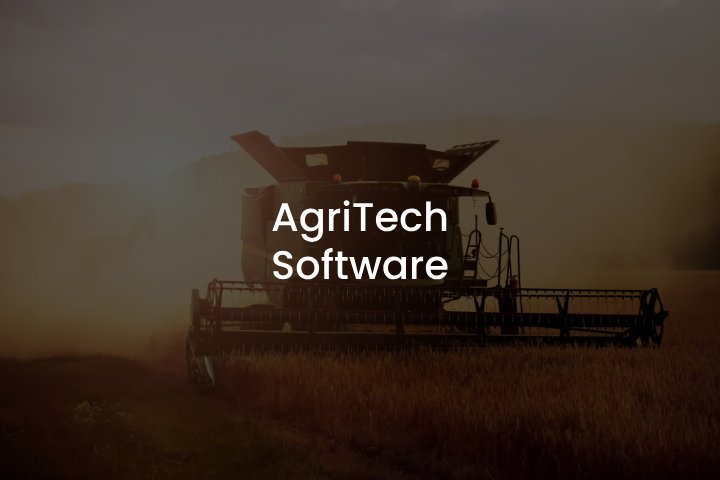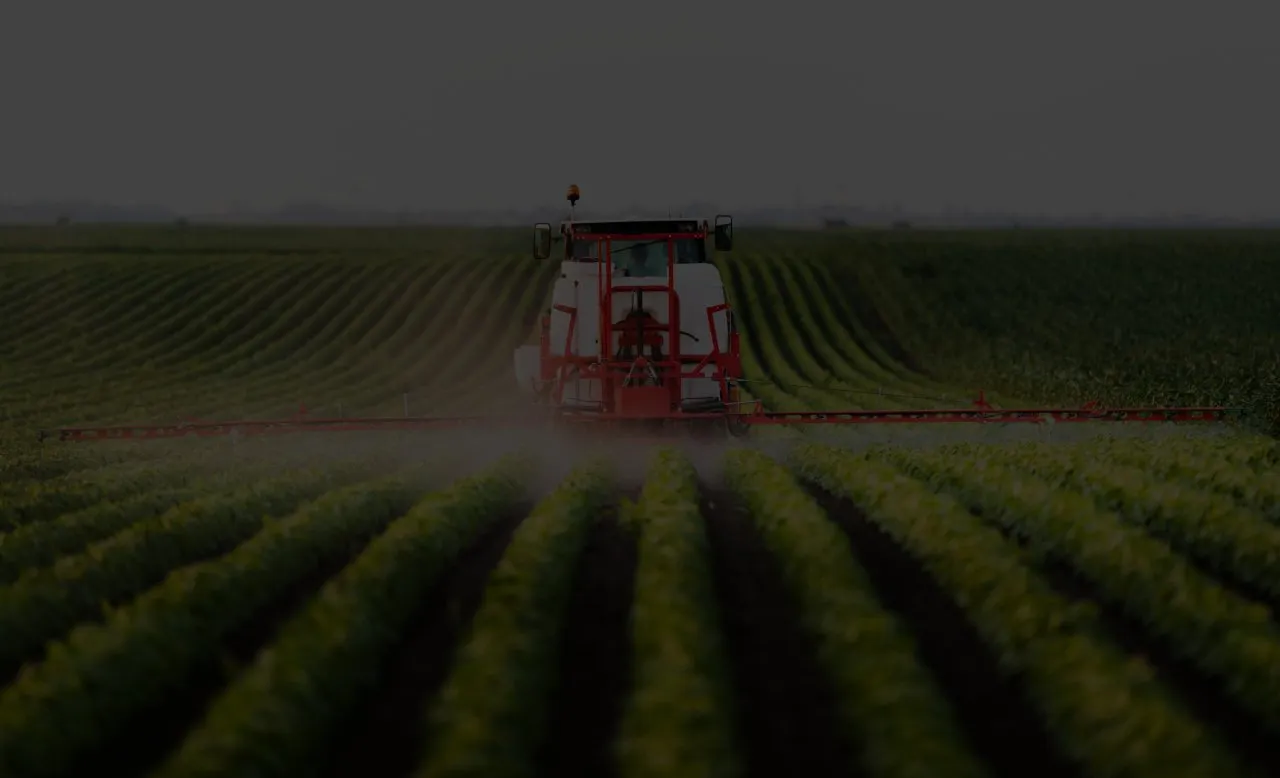
How AgriTech Software is Shaping Sustainable Food Production
The agricultural sector is under great pressure to generate more food sustainably in the face of rising global challenges including climate change, resource depletion, and population growth. Leading this revolution with advanced technologies to maximize agricultural practices, improve efficiency, and support environmental stewardship is AgriTech software.
This thorough analysis looks at how AgriTech tools transform sustainable food output and guarantee a strong future for world agriculture.
Precision Farming: Maximizing Efficiency and Yield
One major advance in agricultural methods is precision farming. Using sensors, GPS, and data analytics, this technologically driven approach manages field variability. Precision farming then helps farmers apply pesticides, fertilizers, and water with amazing accuracy.
- Resource Efficiency: AgriTech program guarantees that crops get the exact amount of resources they require by employing the exact application of inputs. This accuracy lowers farmers’ input costs, lessens their operations’ environmental impact, and helps minimize waste. Variable rate technology (VRT), for example, lets fertilizers be applied site-specifically, maximizing nutrient use and improving soil condition.
- Yield Improvement: Precision farming tools reveal soil conditions, moisture levels, and crop health through thorough field mapping and real-time data collecting. By guiding farmers’ decisions on irrigation, pest control, and planting, this knowledge helps them to produce more crops. Utilizing real-time monitoring and response to field conditions, proactive management is made possible, so lowering the risk of crop failure and raising general output.
Data-Driven Decision Making: Big Data’s Possibilities
Data is now a major resource in agriculture due to the digital era. By using advanced analytics and big data, the AgriTech program transforms farmers’ operations and drives informed decision-making.
- Predictive Analytics: Predictive analytics tools can project future trends and possible challenges by examining enormous volumes of data on weather patterns, soil conditions, and crop performance. These realizations help farmers to foresee and get ready for unfavorable circumstances, such as drought or insect invasions, reducing risks and limiting losses.
- Optimized Planting Schedules: AgriTech’s program offers exact planting and harvesting times based on data analysis. Farmers can guarantee that crops are grown under optimal conditions by adjusting planting schedules and enhancing germination rates and general crop conditions. By helping to choose crop varieties that best fit local environmental conditions, this data-driven approach also improves resilience and yield.
Supply Chain Management: Enhancing Efficiency and Transparency
In agriculture, sustainability reaches all through the supply chain from the farm. AgriTech systems improve the transparency and efficiency of agricultural supply chains, so guaranteeing that food products are made, handled, and distributed in an ecologically conscious way.
- Traceability: Blockchain technology and other tracking tools included in the AgriTech system give end-to-end traceability of food products. This openness guarantees consumers may check the sources and manufacturing techniques of their food, so fostering responsibility and confidence in the food chain. Food safety also depends critically on traceability, which lets one rapidly identify and address contamination problems.
- Reduced Carbon Footprint: Effective supply chain management systems maximize transportation and logistics, thus lowering the carbon footprint of food manufacturers. AgriTech software reduces energy use and emissions by simplifying distribution paths and enhancing inventory control, thus supporting a more sustainable food system. Real-time supply chain operations also help to improve demand planning and forecasting, so lowering food waste.
Water Management: Optimizing a Precious Resource
Water is a valuable resource in agriculture, and its efficient use is critical to its long-term sustainability. Advanced irrigation management systems supported by AgriTech help to maximize water use and guarantee enough hydration for crops, thus reducing waste.
- Irrigation Systems: Smart irrigation systems utilizing sensors and software detect real-time soil moisture levels and meteorological conditions. These systems automatically change irrigation schedules and volumes to provide water precisely where and when needed. Precision helps prevent over- or under-watering, improving crop health and reducing water waste.
- Drought Resistance: AgriTech tools enable farmers to create and carry out plans to lessen drought effects. Through tools for tracking water levels and forecasting weather patterns, farmers can schedule dry spells and implement water-saving techniques. Furthermore, programs supporting the choice and breeding of drought-resistant crop varieties help to guarantee consistent yields under demanding conditions.
Climate Resilience: Adapting to Changing Conditions
Affecting weather patterns, water availability, and pest dynamics, climate change seriously threatens agriculture. By enabling farmers to adapt to these evolving circumstances, AgriTech software strengthens the resilience of food production systems.
- Climate Monitoring: Tools for real-time climate monitoring give farmers current knowledge of weather conditions, which enables them to modify their operations to deal with climate variance. The program can, for instance, suggest ideal planting times depending on expected weather patterns, so lowering the risk of crop failure brought on by unfavorable conditions.
- Resilient Crop Varieties: AgriTech technologies support the selection and development of crop types resistant to extreme climate change and circumstances. Software techniques may identify cultivars more likely to thrive in tough settings using data on crop performance and environmental parameters. This strategy guarantees constant yields and food security under climate change.
Farm Management Systems: Comprehensive Operational Efficiency
Comprehensive platforms integrating many facets of farm operations, and farm management systems improve efficiency and sustainability.
- Operational Efficiency: By grouping data on planting, irrigation, fertilization, and pest control onto a single platform, these systems simplify farm management. This integration lowers labor costs, sharpens decision-making, and raises general production. Farm management systems help producers concentrate on strategic planning and sustainable practices by automating routine chores and offering real-time insights.
- Sustainability Metrics: Farm management systems allow one to monitor and document sustainability indicators including soil health, carbon footprint, and water use. These criteria enable producers to satisfy market needs for environmentally friendly goods and certification criteria. These systems help farmers apply methods that improve sustainability and satisfy customer expectations by clearly showing their environmental influence.
Conclusion
AgriTech software development is revolutionizing the agricultural sector by promoting sustainable practices, enhancing resource efficiency, and improving the resilience of food production systems. By integrating advanced technologies such as IoT, AI, and blockchain, AgriTech solutions enable farmers to produce more with less, ensuring the long-term viability of the agricultural sector and contributing to global food security.
As the world faces increasing challenges related to food production and environmental sustainability, AgriTech software stands out as a beacon of innovation and hope for a sustainable future. Through precision farming, data-driven decision-making, efficient supply chain management, sustainable land and water management, climate resilience, and comprehensive farm management systems, AgriTech software is shaping a new era of sustainable food production.


